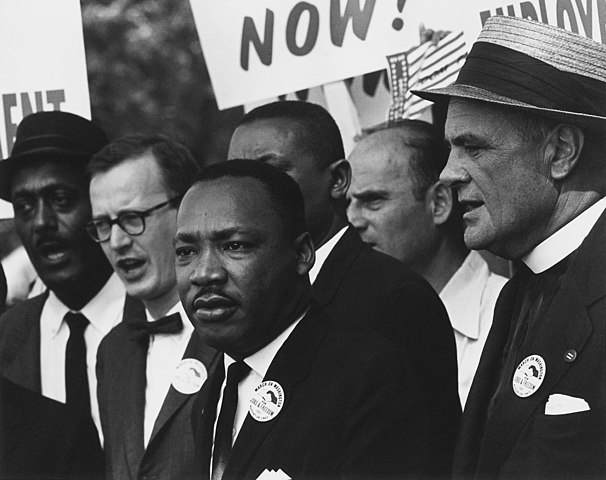
Martin Luther King Jr.: “I Have A Dream” – 60 Years On
Unveiling The Power Of Martin Luther King Jr.’s Speech
Throughout history, there have been speeches that leave a legacy, evoking powerful emotions and inspiring generations, and which are still talked about today.
Then there’s Martin Luther King Jr.’s “I Have a Dream” speech
Delivered on August 28, 1963, during the March on Washington for Jobs and Freedom, this iconic address remains a beacon of hope, a call for justice, and one that’s in contention for being one of the most significant speeches in history.
At A Glance
The “I Have a Dream” speech is a masterpiece of public speaking that not only encapsulated the essence of the civil rights movement but also the aspirations of millions who yearned for a more just and equal society. Throughout the speech, King eloquently articulated his vision of a harmonious nation, and the fulfillment of America’s founding promise of liberty and justice for all.
The Power In Martin Luther King Jr.’s Words
“I have a dream that my four little children will one day live in a nation where they will not be judged by the colour of their skin but by the content of their character.”
This powerful line encapsulates King’s central message: a plea for an end to racial discrimination and the dream of a future where all individuals are treated as equals, irrespective of their racial background.
“Let freedom ring! And when this happens, when we allow freedom to ring, when we let it ring from every village and every hamlet, from every state and every city, we will be able to speed up that day when all of God’s children, black men and white men, Jews and Gentiles, Protestants and Catholics, will be able to join hands and sing in the words of the old Negro spiritual: ‘Free at last! Free at last! Thank God Almighty, we are free at last!’”
This passage paints a vivid picture of unity and freedom, emphasising the shared humanity that should unite all people regardless of their differences.
“With this faith, we will be able to transform the jangling discords of our nation into a beautiful symphony of brotherhood.”
King’s use of metaphors reflects his belief in the transformative power of unity, which can replace the divisive elements in society with a harmonious coexistence.
Immediate Impact
The impact of the “I Have a Dream” speech was immediate and profound. The March on Washington drew an estimated 250,000 attendees and reached millions more through television broadcasts. King’s passion resonated deeply, not only with African Americans but also with people from all walks of life who yearned for justice and equality. The speech amplified the civil rights movement’s momentum, galvanising public support for crucial legislative changes.
Legacy And Historical Significance
The legacy of Martin Luther King Jr.’s speech extends far beyond its immediate aftermath. The “I Have a Dream” speech is a testament to the power of words to inspire change and shift the course of history. Its impact on the civil rights movement cannot be overstated; it played a pivotal role in shaping public opinion and pushing for landmark legislations, including the Civil Rights Act of 1964 and the Voting Rights Act of 1965.
Furthermore, the speech continues to serve as a touchstone for modern social justice movements. Its universal themes of unity, equality, and nonviolent protest have inspired activists across the globe, from those fighting for racial justice to advocates for gender equality and LGBTQ+ rights.
Martin Luther King Jr.’s “I Have a Dream” speech is more than just a collection of words—it’s a catalyst for change, a symbol of hope, and a testament to the enduring power of human ideals. The phrases that resonate within it are not mere rhetoric; they are a rallying cry for equality, justice, and unity.
60 years later, a lot has changed but there is still much work to do. As we reflect on the significance of this historic address, we are reminded that the struggle for justice is ongoing, and that each of us has a role to play in turning King’s dream into a reality.
For more on Martin Luther King Jr. the man, you can find a second article by clicking here.